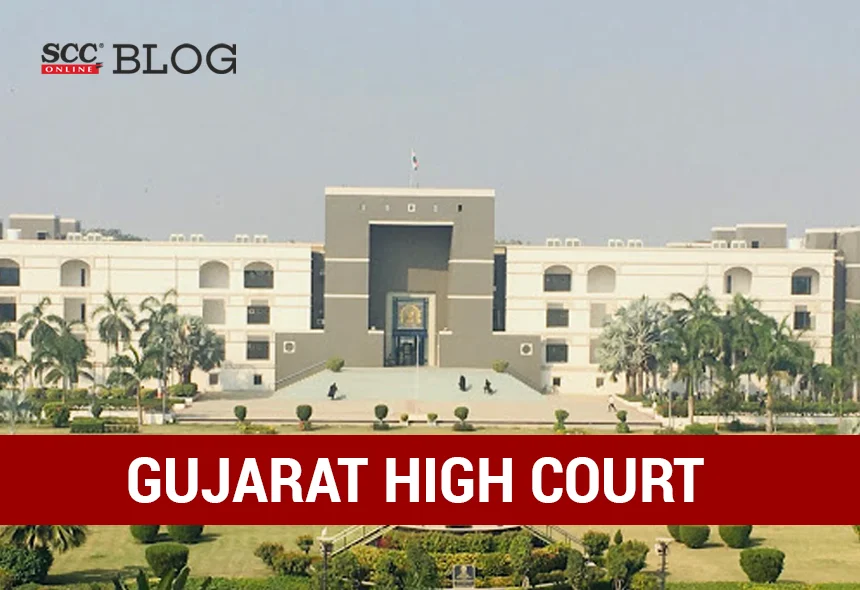Gujarat High Court: In a criminal revision application filed against the order of the Sessions Court wherein the discharge application of the accused/applicant was rejected for offence punishable under Section 376 of the Penal Code, 1860 (‘IPC’), the Single Judge Bench of Gita Gopi, J., allowed the revision application and set aside the impugned order of the Sessions Judge.
Factual Matrix
In the matter at hand, the complainant filed a First Information Report (‘FIR’) against the accused on 10-05-2018, for the offence punishable under Section 376, 406 and 420 of the IPC. Subsequently, the parties had arrived at a settlement before the Court and the FIR against the accused was quashed under Section 482 of the Code of Criminal Procedure, 1973 (‘CrPC’). However, the complainant filed another FIR against the accused for offence under Section 376 of the IPC on 24-08-2018 and alleged that the accused had forcibly entered into physical relationship with her on the promise of marriage. The accused had preferred an application for quashing the said FIR registered against him, wherein the applicant was permitted by the Court for moving an application for discharge. However, the Sessions Judge had rejected the application of the accused seeking discharge. Thus, aggrieved by the said order of the Sessions Judge, the accused had preferred a criminal revision application before the Court.
Court’s Decision
The Court referred to Section 90 of IPC which explains consent known to be given under fear or misconception of facts. The Court also referred to Explanation II of Section 375 of the IPC which defines Consent as- ‘an unequivocal voluntary agreement when the woman by words, gestures, or any form of verbal or non-verbal communication, communicates a willingness to participate in the specific sexual act.’
The Court said that to establish a false promise, the maker of the promise should have had no intention to uphold it at the time of giving it. The Court also added that the consent under Section 375 of the IPC is vitiated on the ground of misconception of fact and the said misconception should be the basis for the victim to indulge in the said act. The Court stated that in the present case the complainant, even during the period of her marriage, was in relation with the accused, and had established physical relations with the accused during her marriage. Thus, the Court said that since the complainant was married, she would have had no intention to marry the accused, nor could the accused have given any promise to marry her. Further, the Court said that the relation which the complainant established with the accused during the existence of her marriage would be considered as ‘extra marital relation’ and according to her, the accused had developed friendship on social media and thereafter, had entered intimate relationship.
The Court referred to Kaini Rajan v. State of Kerala, (2013) 9 SCC 113 and Deepak Gulati v. State of Haryana, (2013) 7 SCC 675, wherein the expressions ‘consent’ and ‘without her consent’ were discussed. Placing its reliance on Union of India v. Prafulla Kumar Samal, (1979) 3 SCC 4, the Court said that while dealing with an application under Section 227 of the CrPC, upon consideration of the record of the case and the documents submitted and after hearing the submissions of the accused and the prosecution, the enquiry of the Judge must necessarily be limited to deciding of the facts emerging from the record and documents constituting the offence with which the accused is charged. Further, the Court added that at that stage, the Judge may sift the evidence for the limited purpose, but he is not required to marshal the evidence with a view to separating the grain from the chaff.
The Court said that in the present case the complainant was a married woman, mother of two children when she developed friendship with the accused, and it appears from the facts that the accused was knowing that the complainant was a married lady and the complainant too, being married was in relation with the accused. The Court said that at the inception of the relationship, there would not have been any promise to marry, for the complainant to give consent for physical relation based on the promise. The complainant was very well knowing the pros and cons of the relationship. It is not the case that a false promise of marriage was given at the early stage, the complainant was aware of the nature and consequence of sexual indulgence. The Court also added that the complainant had continued with her relationship with the accused probably with the hope of a marriage, even after her divorce. The FIR was quashed on the consent of the complainant and while withdrawing the charges, the complainant had not secured any assurance of marriage, for the complainant to have given a cause to lodge an FIR for the offence of rape.
Thus, keeping in view the facts as emerging between the parties, the Court said that no case was made out against the accused and there were no sufficient grounds to pursue the case against the-accused. The Court also stated that the present case was of consensual sex. Therefore, the Court allowed the criminal revision application and quashed and set aside the impugned Judgment of the Additional Sessions Judge, City Civil and Sessions Court, Ahmedabad. The Accused was also discharged from the FIR registered against him.
[Rohit Dinanath Ray v. State of Gujarat, 2023 SCC OnLine Guj 2212, Decided on 11-07-2023]
Advocates who appeared in this case :
For the applicant: Advocate Ashish B Desa;
For the respondents: Advocate Divyang A. Ramani, Additional Public Prosecutor Jirga Jhaveri.









